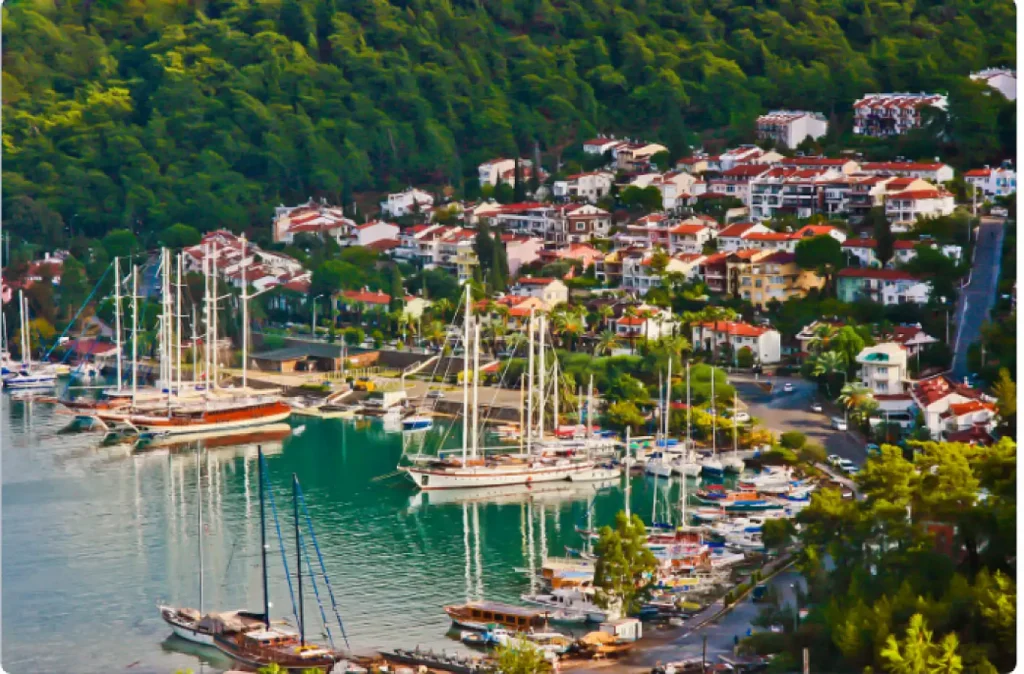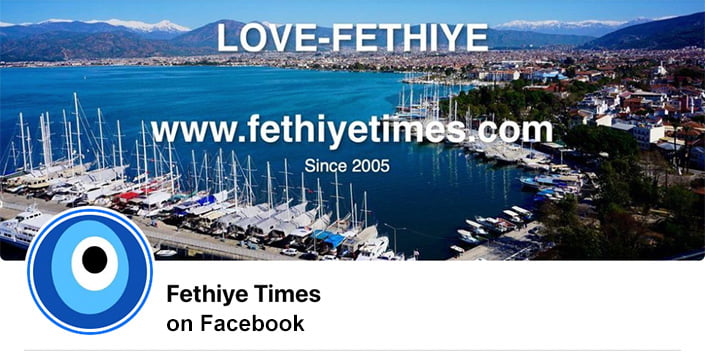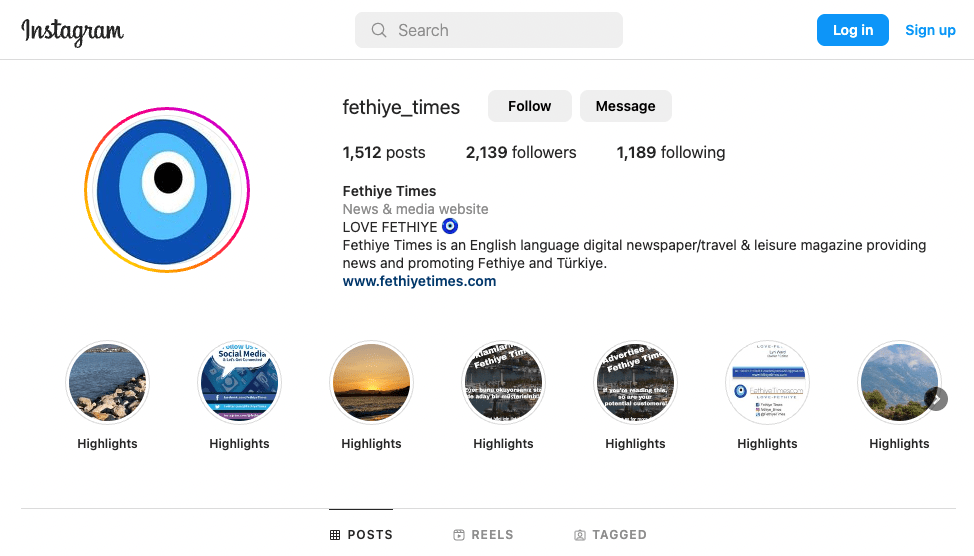Fethiye, often celebrated as the “pearl of Muğla,” is a district renowned for its remarkable blend of historical and natural beauty.
Over the centuries, it has evolved into a cultural mosaic, welcoming visitors from diverse backgrounds and assimilating their influences. This transformation has bestowed Fethiye with a unique identity, enriched by the convergence of various cultures and histories.
A Tapestry of Cultures
Fethiye’s cultural heritage is the result of its long history as a crossroads of civilizations. The district has seen the rise and fall of empires, including the Lycians, Persians, Romans, and Ottomans. Each of these civilizations left indelible marks on Fethiye, influencing its architecture, culinary traditions, and societal norms. Today, tourists from all over the world add their own cultural flavors to this vibrant tapestry, immersing themselves in local traditions while sharing their own.
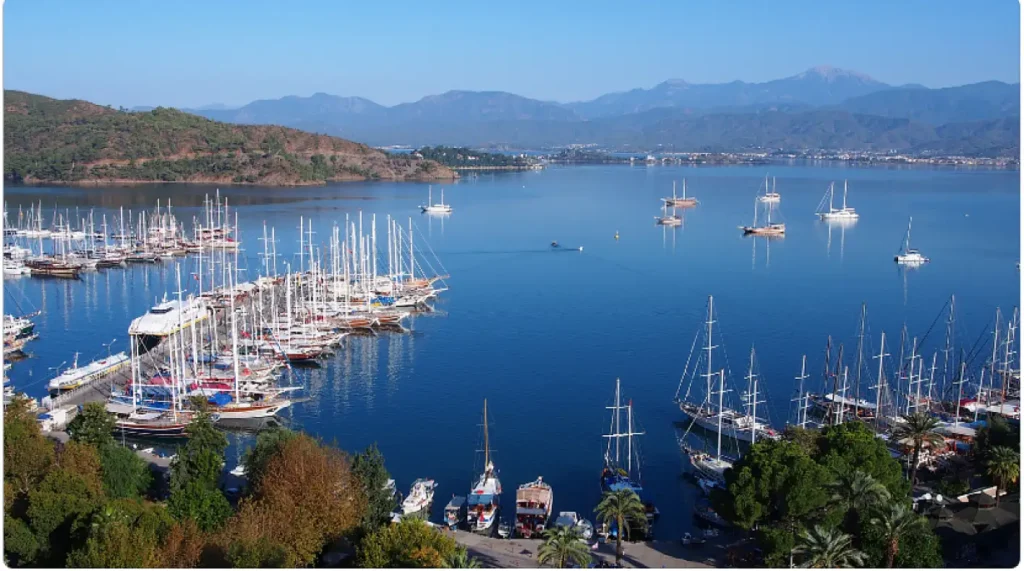
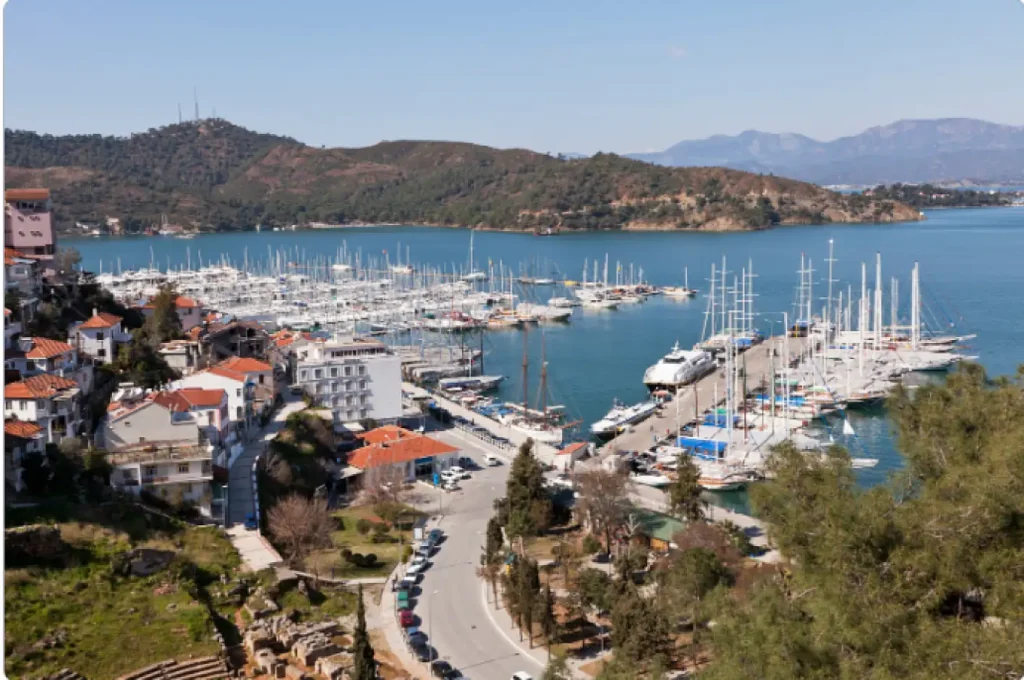
Historical Continuity and Modern Flourishes
The ancient cities, rock tombs, and historical castles of Fethiye are testaments to its rich past. These sites provide a glimpse into the lifestyles and beliefs of ancient peoples, linking the present to the past. However, since the latter half of the 20th century, Fethiye has experienced a tourism boom, attracting visitors primarily from England, Germany, and the Netherlands. This influx of tourists has transformed Fethiye’s landscape and economy, making it an internationally recognized destination.
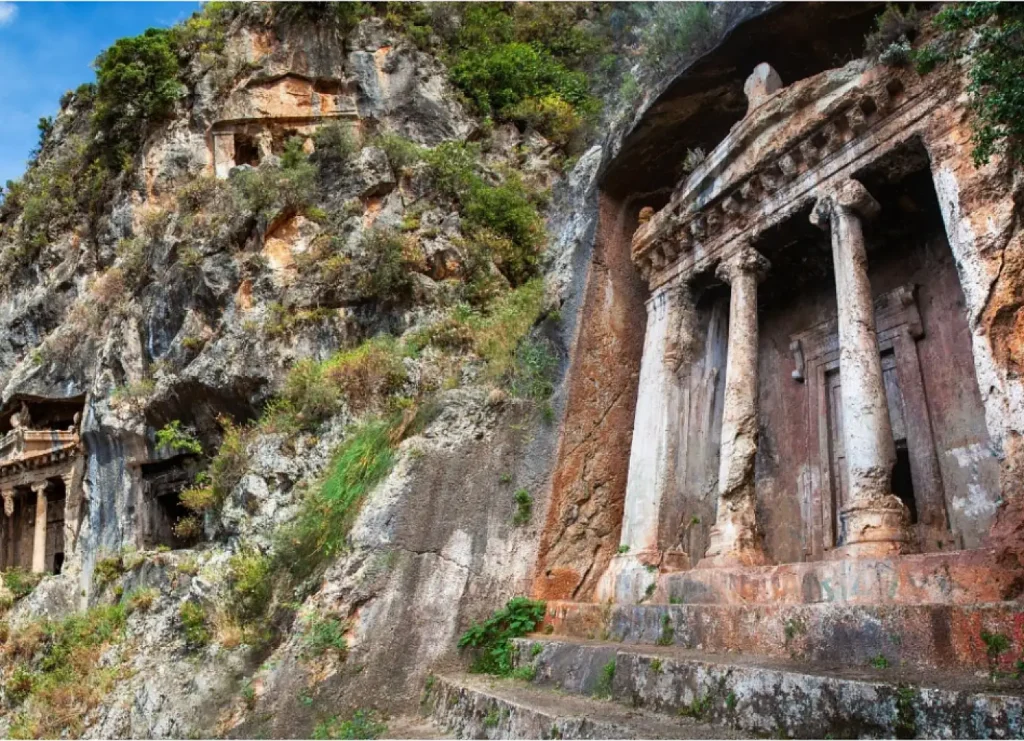
Tourism’s Impact and Evolution
The rise of tourism has brought about significant changes in Fethiye:
- Economic Growth: Tourism has become the cornerstone of Fethiye’s economy. The establishment of hotels, restaurants, and other tourist facilities has improved local living standards.
- Infrastructure Development: To accommodate the growing number of visitors, there have been substantial investments in infrastructure, including expanded roads, modernized ports, and increased airport capacity.
- Cultural Exchange: The diverse influx of tourists has created a vibrant cultural atmosphere, introducing new traditions and lifestyles that have enriched the local community.
- Social Dynamism: Tourism has invigorated Fethiye’s social scene, leading to the opening of international restaurants, bars, and cafes, and a more active nightlife.
- Environmental Awareness: The pressures of tourism have highlighted environmental issues, fostering a growing awareness of the need for sustainable practices.
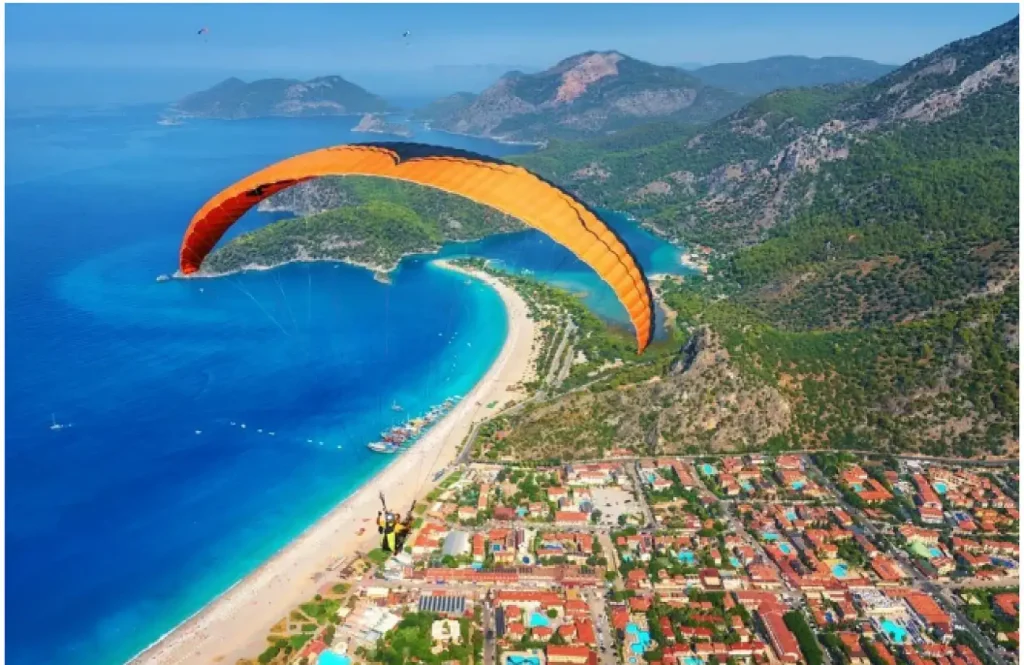
Sustainability Challenges and Opportunities
Despite its economic benefits, tourism has also introduced environmental challenges, such as increased waste, overuse of resources, and marine pollution. Addressing these concerns requires a commitment to sustainable tourism practices. Raising environmental awareness among locals and tourists, protecting natural resources, and implementing effective waste management systems are crucial steps toward ensuring Fethiye’s long-term sustainability.
Fethiye’s transformation from a historical settlement to a modern cultural hub underscores the profound impact of external influences. As it continues to grow as a premier tourism destination in Türkiye, the district faces the challenge of balancing development with the preservation of its natural and cultural wealth. By prioritizing sustainability, Fethiye can maintain its unique charm and continue to thrive as a beacon of cultural diversity and natural beauty.
Source: Gerçek Fethiye

